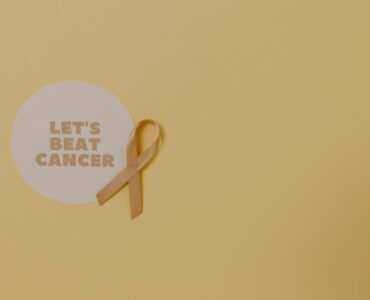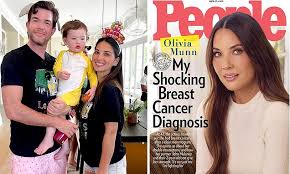I had four rounds of chemotherapy over a 12-week timeframe as part of my breast cancer treatment plan. Like Catherine, the Princess of Wales, it was deemed to be preventative. After surgery, pathology showed that the cancer had snuck into two of my left side sentinel nodes and showed signs it was on the move to the third, so chemotherapy was recommended to ensure some errant cancer cells didn’t sneak past the goalie (so to speak). I’m writing this blog in honor of my two-year anniversary of my chemotherapy start date. As they say, time flies.
Hearing the words “you need chemotherapy” is soul-crushing. We all see the cancer movies and the pictures online and a picture instantly forms in your head of how it will be, and worries start bubbling up. Will I be horribly sick? What will I look like bald?
Then, at your first appointment to meet with the medical oncologist, you are given a booklet that only seems to make matters worse. In it, you read about a long list of symptoms you never even considered, from neuropathy to mouth sores to the dreaded diarrhea, something called chemo brain and so much more. I was prescribed a regimen called Cycldoce, a combination of two chemotherapy drugs, docetaxel and cyclophosphamide, to be administered every three weeks. For reasons only known to my oncologist (potentially my age?), I was spared the dreaded “Red Devil” which is a form of chemo used quite commonly in the treatment of breast cancer. My oncologist also determined that I would not need a port. So the drugs would be administered intravenously.
It is overwhelming and frightening to be at the front end of a chemotherapy regimen and that first appointment in particular, where everything is new and unfamiliar is particularly daunting. Let me take you back to my first appointment and what happened.
Welcome to the chemo suite
I arrived at the hospital for my 9 am appointment with my husband in tow. It is a smaller hospital and a small chemo suite, so I was allowed to bring him along for the first appointment, but for subsequent rounds, I would have to go it alone. I completely overpacked for the occasion. I had a grocery tote full of puzzle books, water, granola bars and my newly acquired Suzzi ice mitts and socks as I had heard from other women that keeping my hands and feet iced during the infusion might help stave off neuropathy (I have zero medical back up for this statement but it did work for me. I had no neuropathy and no nail damage!). Knowing I’d be there for a while, I also dressed comfortably for the first appointment in leggings and my, let’s make a statement while we’re at it, “Boobless” t-shirt.
Once I was checked in, I headed down to the chemo suite. For this first round, I would be settled in on a hospital bed. Docetaxel can cause an allergic reaction in some patients, so, they needed to prepare for the worst and be ready to intervene if something went sideways. They would also be administering the drug in a titred way — in other words, slow and low. As an additional precaution against allergic reaction, they also give you a prescription for steroids that you take two days before your appointment and the day following.
You are assigned a nurse for the procedure. Christie, who was looking after me for the day started me on an IV line to get the fluids going. The hospital pharmacist also spent time with us, explaining the drugs I would be on and reviewing all the possible ugly side effects I might be looking forward to. I remember vividly asking her about permanent hair loss, which is a possible side effect of the drug I would be on. She assured me that it was a drug used all the time and that this outcome was rare, so much so that she’d never experienced it in her career. That helped build my confidence.
Preventing an allergic reaction to chemotherapy drugs
Christie then hooked up a small bag to my IV pole. Benadryl, administered in advance as a precaution. Now I’ve had spoonfuls of Benadryl in my lifetime, but mainlining a bag of it straight into your veins is a whole other matter. I remember when the drug hit my system. I had a crazy head-spinning moment that felt as if I’d just knocked back a tumbler full of scotch (not that I have ever actually done that I’ll add).
Then, my chemo drugs were ordered up from the pharmacy, my very own toxic cocktail ordered up from the hospital bar.
Christie then donned her protective gear, including a gown, gloves and face mask to get me started on the docetaxel round. Yep, this stuff is poison and they are about to introduce it into your veins. It does give one pause.
Then, over the next four hours, my husband and I hung out, me with my ice socks and oven-mitt-like ice gloves on my hands, he glued watching car videos on his tablet, as the drug was slowly administered. The second drug, cyclophosphamide was like the chaser after the main cocktail. It took about an hour to get that one into my body, and as drug does not cause neuropathy as a side effect, I was able to free up my frozen hands and feet.
My chemotherapy side effects
As far as the dreaded side effects? Well, I did lose all my hair (and not just on your head). That started to fall out about ten days after the first round of chemo, and once it started, went quite quickly. I experienced fatigue, which would kick in usually on Sunday, two days after my chemo treatment and last for a few days. It’s not sleepiness, it is fatigue like no other — as if your whole body is swimming through peanut butter. The other side effect I experienced was bone pain, for which my doctor recommended taking Claritin which has anti-inflammatory properties. And in terms of my tastebuds, while I never lost my appetite, I did have a “salty” taste in my mouth, making sweet things taste salty for some bizarre reason. I had one day after round one where I will admit to feeling rather vile and spent the day in bed binging Netflix. It’s funny how you start to forget, but I did have small nose bleeds after each session, but nothing debilitating. But beyond that one day in my first round, I experienced no nausea, no mouth sores, and as I said above no neuropathy or nail changes. My energy levels on my good days allowed me to continue to work out and walk several kilometres. I am self-employed and continued to work throughout treatment. I was able to entertain and enjoy my summer for the most part. My eyebrows and eyelashes hung on until near the end then bailed with the rest of my hair. And for the few months after treatment ended, I did experience some subtle effects of chemo brain – in particular noticing that my brain’s labelling function was a bit wonky. My husband had to put up with me introducing him as my brother every now and then.
Or perhaps that’s just old age. I’ll never tell.
If you want to also read about my experience with radiation treatment, check out this blog.




